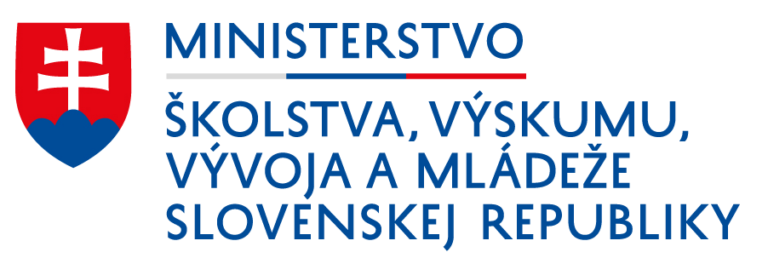About
The Slovak Centre of Training Companies (SCCF) is a department of the State Institute of Vocational Training (ŠIOV). The SCCF was established in January 1998 on the basis of a decision of the Ministry of Education of the Slovak Republic and with the effective moral and material support of the Austrian Ministry of Education and KulturKontakt. The SCCF primarily ensures cooperation with Slovak training companies, but also represents Slovakia internationally as the main contact body with the PEN WorldWide Headquarters and with foreign headquarters.
The Slovak Centre of Training Companies operates in the premises of the State Institute of Vocational Education at 54/A Bellova Street in Bratislava. It also has a detached workplace, which works at the University of Economics in Bratislava at the Faculty of National Economy, Department of Pedagogy, Dolnozemská cesta 1, Bratislava.

Main tasks of the SCCF
- simulates government offices - the Department of Trade Enterprise, the Court of Registration, the Finance and Customs Office, the Social and Health Insurance Office, the Post Office and the Bank for Domestic and Foreign Payments. The Centrobank at the SCCF also maintains the personnel accounts of the training firms, as well as the accounts of the insurance companies and the finance office, thereby simulating the flow of finances of the training firms.
- prepares conferences, seminars, trainingsprovides consultancy services for training companies, prepares and manages projects, assists in the development of school projects, ensures international cooperation, manages its own website www.sccf.sk
- organises competitions for trainee companies (e.g. a competition for the best business plan).
- prepares and organises trade fairs and contracting days for trainee companies at home and abroad.
The training company is set up like a real company and has the basic departments of a real company, such as the personnel department, the secretariat, the legal department, the sales department, the marketing and advertising department, the economic department, etc. It is a simulation of the activities of the departments in a real company, where pupils have the opportunity to make a mistake that does not have the same economic impact as in a real company, but has an educational function.
The practitioners have different businesses and trade with each other. Working in a training company improves the professional qualifications and skills of the pupils or other participants and develops multidisciplinary skills in the participants of the target groups, the so-called key competences: the ability to work in a team, the ability to communicate, the ability to solve problems creatively, to make decisions, to draw conclusions, to think critically and independently, to develop oneself, to stimulate the development of others and to use the latest information technology. The practice company promotes creativity, develops cooperation and presentation of results, helps to acquire skills to navigate in economic practice and to react promptly. It is a bridge between theory and practice and prepares young people for real working life - enabling them to gain the experience that almost every new employer requires of them. It also takes the "fear" out of entrepreneurship and real working life.
A short look into the history
Austrian and German vocational secondary education can be considered the cradle of training companies. Both countries are leaders in the field of trainee companies. Germany, with around 470 training companies, uses 50% of them for adult education. In Austria, there are around 860 mock companies, mainly in the education sector, using the so-called school model, and the subject of mock companies is compulsory in all business schools and business academies.
The German model, the so-called retraining model, is designed as a multi-month course mainly for the target group of the unemployed. Participants attend for 6 to 8 hours every day, so that they do not fall out of the standard working rhythm and at the same time have sufficient time to learn new work activities and habits on a routine basis. Participants are also financially motivated, as they receive a higher financial support than the standard unemployment benefit for the work they do on the course for the duration of the course.
Within the Austrian, so-called school model, the training company (hereinafter CF) is included in the curriculum as a compulsory vocational subject. It is taught in upper secondary schools, usually for 5 hours per week, most often as a five-hour block, which allows half a working day to be simulated. Pupils are particularly motivated by the way in which it is taught, which does not have a classical frontal character.
The modern history of the teaching of the subject of the training firm has a forty-year tradition in advanced market economy countries. Today, there are approximately 225,000 trainees in 46 countries in the PEN WorldWide network, the global association of trainee firms.
The emergence of training companies in Slovakia
The idea of mock, originally fictitious companies was introduced into the educational process of secondary schools in the Slovak Republic through the Department of Pedagogy of the Faculty of National Economy of the University of Economics in Bratislava, which initiated the creation of the first fictitious companies at the business academies in Bratislava and Senica in the school year 1991/1992. Subsequently, the Centre of Fictitious Companies was established at the aforementioned Department, which played a pioneering role in the process of the creation and development of mock companies at secondary vocational schools in the Slovak Republic. The great interest in the concept of mock firms on the part of business academies and the development of international cooperation in this field created the need for the management and coordination of the activities of mock firms. This has led to the requirement to build a national headquarters for training companies, to ensure its financing and staffing. It was not possible to ensure the establishment of such a national centre at the University of Economics in Bratislava, also because of the need for its legal subjectivity. The solution was the creation of the Slovak Centre of Training Companies, which is an independent department of the State Institute of Vocational Education (hereinafter referred to as ŠIOV). It can be stated that ŠIOV supported the idea of training companies from the very beginning. In cooperation with the Federal Ministry of Education and, in particular, the Federal Institute for Vocational Training in Berlin, as early as 1994 the project Transforma materially equipped the first three pilot training companies in three regions of Slovakia - at the Business Academy (OA) on Račianska Street in Bratislava, at the OA in Poprad and at the OA in Banská Bystrica. The cooperation between Austria and the Slovak Republic resulted in a project in which a series of multiplier trainings were held in 1997, 1998 and 1999 for the staff of the Slovak Centre for Training Companies and teachers from nine pilot schools in the Slovak Republic (two from Bratislava and seven from other regions of Slovakia), which form the network of multipliers of the training company project.
The CF network in each country is managed by the national headquarters of the training companies, which simulates for them the state administration authorities (in Slovakia, the Department of Trade Licensing, the Court of Registration, the Social and Health Insurance Office, the Finance Office, the Customs Office and the Training Bank), organises training events for teachers and trainers of training companies, runs training projects and organises an international fair for training companies.
In Slovakia, the school model currently dominates in the area of training companies. After its successful application, the first steps are gradually being made in the retraining area. Since 1998, the number of CFs has dynamically increased from 35 to about 700 registered training companies. The reason for this is very simple - the simulation of real practice in the educational environment of training companies provides excellent preparation for future employment and, in addition to professional knowledge and skills, also conveys the so-called key qualifications to the pupils. The majority of CFs work in all types of secondary vocational schools, experimentally at the University of Economics in Bratislava, and we also apply mock companies in the field of adult education.
The subject Practical firm, which is taught in our schools as a compulsory or optional subject, integrates theoretical knowledge from several economic subjects, is a bridge between theory and practice and, very importantly, pupils also enjoy it. The advantage of this form of integration of the curriculum is that it seeks to be as close as possible to real practice.
SCCF is a member of PEN WorldWide
In May 2001 the SCCF became an associate and in January 2008 a full member of PEN WorldWide, the global headquarters of training companies in Essen, Germany (https://penapps.penworldwide.orgSCCF membership in PEN WorldWide allows Slovak companies to communicate on-line through the PEN WorldWide database with any training company abroad and to participate in foreign trade fairs. This membership brings, besides the character of a registration membership, also real material assistance, because we can use database, information, communication and banking software and help in the field of know-how.
PEN WorldWide represents practitioners from all over the world through its national headquarters.
PEN WorldWide, originally called EUROPEN (EUROPEN is an abbreviation derived from the name European Practise Enterprises Network), was founded in November 1993. It was founded at a meeting at the Centre for Employment Promotion in Essen by heads of centres from the Netherlands, Great Britain, France, Germany, Austria and Denmark, who also became standard members. Membership of PEN WorldWide is divided into standard, associate and affiliate. Countries that do not belong to any of the categories, yet cooperate with member states, are defined as participating. PEN WorldWide is a global association of practitioner companies, comprising 46 countries.
Each trainee company in the network, including Slovak companies, can search for potential buyers in databases, yellow pages and communicate online via PEN WorldWide applications with trainee companies at home and abroad.
Our trainee firms get a lot of useful information from PEN WorldWide, especially contact information for foreign trainee firms. They can also get this information from the Slovak Centre for Training Companies and especially at international training company fairs where they come into direct contact with foreign business partners. International training fairs are organised by all PEN WorldWide countries.

